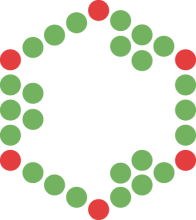The End Of The World As We Know It - Part 2
So for this cheap version of world patent disruption - you just tell the world you've calculated GBD-46, have it on a large server farm somewhere, and that you're ready to check novelty of chemical structures as a service for the world. You just need a fancy building like the one above, some nice business cards, and an Internet presence, and an AWS account. It's just that you haven't really done any enumeration - remember, super-villains aren't like readers of the ChEMBL-og and would not worry about always telling the truth.
Your patent checking website, would just simply echo back the query (if it was chemically sensible), and say "yeah, that's in there, it's not novel". Now the smarter users would probably say "But how do I know it's in there?" It's pretty simple to rapidly enumerate a large set of compounds around a seed, using a simple rule set, just return these as nearest neighbours, and it looks like you really do have a database of every compound ever possible. To provide a veneer of credibility, you could offer the entire database for download, and of course the ftp site would just deliver an infinite stream of random numbers following a gzip header, for a download that either fills up the recipients disk, or never finishes.

